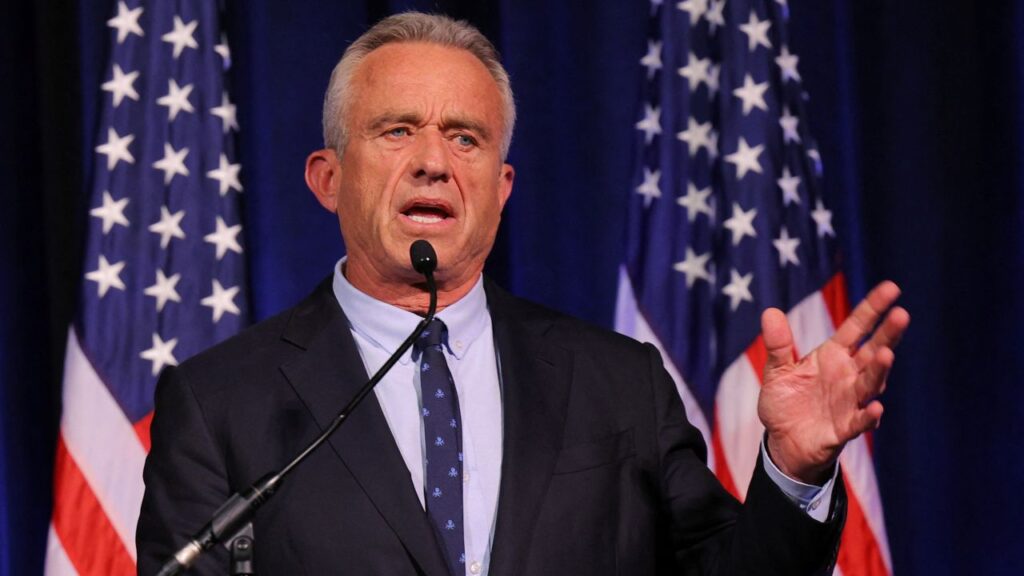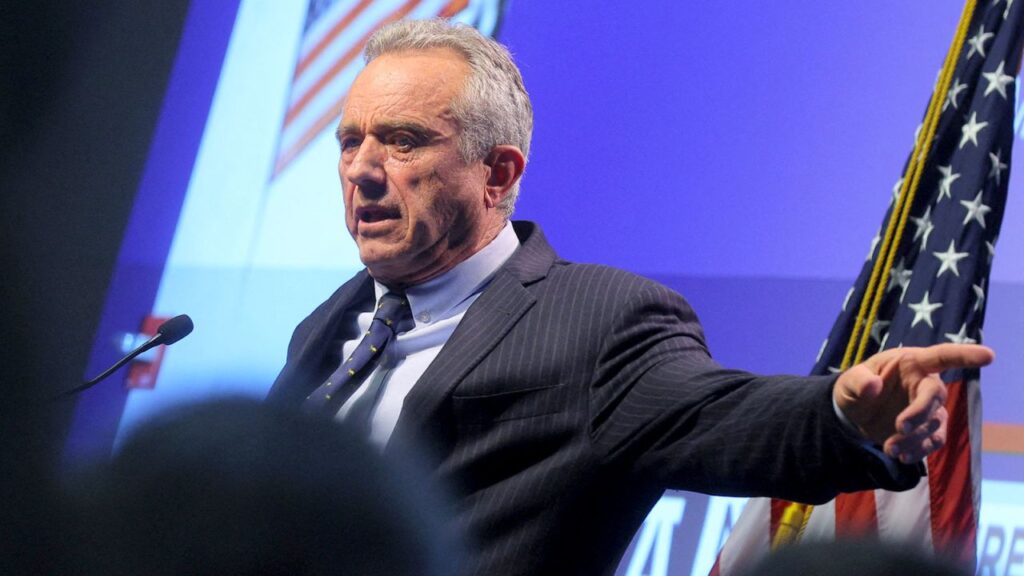When we think of the Kennedys, one name that stands out—beyond President John F. Kennedy and his other famous family members—is Robert F. Kennedy, often called Bobby. He was more than just the brother of a president; he was a man with a vision of justice, equality, and peace, whose life was tragically cut short. His biography is a fascinating tale of public service, personal struggles, and, above all, an unwavering dedication to making the world a better place. Let’s dive into the life and legacy of Robert Kennedy.

Early Life and Family Background: A Legacy of Service
Born Into a Political Dynasty
Robert Francis Kennedy was born on November 20, 1925, in Brookline, Massachusetts. As the seventh of nine children in the prominent Kennedy family, Robert’s early life was shaped by both privilege and high expectations. His father, Joseph P. Kennedy Sr., was a wealthy businessman and political figure, and his mother, Rose Kennedy, was deeply involved in charitable work. This family, often called America’s royal family, was destined for greatness.
But Robert, despite his father’s grand political ambitions, was not a typical heir to the Kennedy fortune. From a young age, he witnessed the sacrifices and struggles of the American people, and it became clear that he would chart his own path. His brother John F. Kennedy’s election to the presidency in 1960 would change Robert’s life forever, though in unexpected ways.
The Impact of World War II
At 18, Robert Kennedy enlisted in the U.S. Navy during World War II. Serving on a naval vessel in the Pacific, he experienced firsthand the devastation of war, which shaped much of his future political beliefs. Robert’s military service not only honed his sense of duty but also gave him a clearer understanding of the importance of leadership, sacrifice, and the value of serving the public good.
Education and Early Career: A Reluctant Politician
Harvard and Law School
After the war, Robert attended Harvard University, where he earned a degree in economics. But it was his time at Harvard that began shaping his worldview. During his studies, he developed a keen interest in social issues, particularly the plight of the poor and disenfranchised. This interest led him to pursue a law degree at the University of Virginia.
Though law school seemed like a more conventional path for a man of Robert’s family background, it was clear he was destined for something greater. He believed law could be used as a tool for social change—an idea that would define his career.
The First Steps in Politics
Robert’s early political career wasn’t a smooth ride. After law school, he worked for his brother John’s political campaigns, first as a legal advisor and then as a campaign manager. His hard work paid off when John became the 35th president of the United States. But Robert’s own political aspirations were still in the background.
In 1964, he stepped into the political arena when he was appointed to the position of U.S. Attorney General under his brother’s administration. Though Robert was young and relatively inexperienced, he quickly became known for his fierce advocacy for civil rights and his relentless pursuit of organized crime.
Attorney General: Champion of Civil Rights
Fighting for Racial Justice
As Attorney General, Robert Kennedy was a passionate advocate for racial justice. The Civil Rights Movement was in full swing, and his efforts to end segregation were pivotal. He worked closely with leaders like Dr. Martin Luther King Jr. and sent federal troops to protect African American students enrolling in schools in the South.
Robert didn’t just take a passive stance; he fought for policy changes that would guarantee civil rights for all Americans. His work during this time earned him a reputation as a fierce fighter for justice.
Tackling Organized Crime
Beyond civil rights, Robert’s tenure as Attorney General saw him battle organized crime. He was instrumental in taking down the mafia, using federal resources to break up criminal networks that had long held power in the United States. Robert’s relentless efforts in this area would be part of his legacy as a politician who fought for the rule of law and fairness.

Robert Kennedy’s Senate Career: From Washington to the Streets
A Shift to the Senate
In 1964, following his brother’s assassination, Robert Kennedy was elected to the U.S. Senate from New York. His decision to run was a personal one, a way to honor his brother’s memory and continue his own political journey.
Once in the Senate, Robert Kennedy quickly made a name for himself as a voice for the underprivileged. He focused on issues like poverty, education, and the rights of migrant workers. His compassion for the struggling masses was evident as he traveled to the poorest areas of the country to meet with people and learn about their problems firsthand.
Fighting for the Poor and Disenfranchised
One of Robert’s key initiatives was to address poverty in America. He made visits to inner cities, rural areas, and the Appalachian Mountains, where he met with families living in dire conditions. His efforts to alleviate poverty became a major part of his political platform. He was one of the few politicians at the time to speak candidly about the need to address economic inequality.
Robert’s work with migrant farm workers, led by activist Cesar Chavez, also shaped his legacy. He strongly supported their rights to fair wages and better working conditions, becoming a champion of labor rights.
Robert Kennedy’s Presidential Run: Hope for the Future
A Nation in Turmoil
By 1968, the United States was embroiled in social and political turmoil. The Vietnam War was divisive, and racial tensions were at a high. It was during this time that Robert Kennedy decided to run for president. His entry into the race was met with both excitement and skepticism, as many believed he was too deeply entrenched in the Kennedy family legacy.
But Robert was undeterred. His campaign was built on a message of hope, unity, and healing—a stark contrast to the bitterness and division of the time. He spoke passionately about ending the war in Vietnam, addressing poverty, and achieving racial justice.
The Tragic Assassination
On June 5, 1968, just moments after delivering a victory speech in California, Robert Kennedy was shot by Sirhan Sirhan, a 24-year-old Palestinian Arab, at the Ambassador Hotel in Los Angeles. Robert was rushed to the hospital but died from his wounds the next day. He was only 42 years old.
The nation was in shock. Robert’s death was another blow to a country already reeling from the assassinations of Martin Luther King Jr. and his brother, John F. Kennedy. The dream of a better, more just world seemed to die with him that day.
Legacy: A Life That Continues to Inspire
A Champion of Justice and Equality
Robert Kennedy’s death left an indelible mark on the world. His legacy lives on in the countless people he inspired to stand up for justice, equality, and peace. His vision for a better world, though tragically unfinished, continues to resonate.
Today, Robert Kennedy’s name is synonymous with fighting for the underdog, standing up to injustice, and striving to make the world a fairer place. His work, especially in the fields of civil rights, poverty alleviation, and social justice, laid the foundation for many of the political movements that followed.
Remembering Robert Kennedy
Though his life was short, Robert Kennedy’s impact was far-reaching. His legacy is honored through various foundations, scholarships, and public works that carry on his vision of equality and justice. His speeches, particularly those after the assassination of Martin Luther King Jr., remain some of the most powerful calls for unity and hope in American history.

Conclusion: Robert Kennedy’s Enduring Impact
In the end, Robert Kennedy’s life reminds us of the importance of speaking out for what is right, even when it seems difficult or dangerous. His efforts to make a better America, free of prejudice and poverty, are a testament to the power of hope and perseverance. His tragic death left a hole in the heart of a nation, but his ideals continue to inspire generations.
FAQs
1. What were Robert Kennedy’s main accomplishments?
Robert Kennedy is remembered for his efforts in civil rights, his battle against organized crime, and his advocacy for the poor and disenfranchised. As U.S. Attorney General, he fought for racial justice, and as a senator, he focused on poverty alleviation and workers’ rights.
2. Why was Robert Kennedy so influential in the 1960s?
Robert Kennedy’s influence in the 1960s stemmed from his ability to connect with ordinary Americans. His commitment to justice, civil rights, and peace made him a unifying force during a time of national division.
3. How did Robert Kennedy’s assassination affect the country?
His assassination in 1968 shocked the nation and deepened the sense of loss following the death of his brother, John F. Kennedy, and civil rights leader Martin Luther King Jr. It also underscored the turbulence of the 1960s, symbolizing the end of an era of hope.
4. What was Robert Kennedy’s vision for America?
Robert Kennedy envisioned an America where racial and economic inequalities were addressed, where the poor had access to opportunities, and where peace and justice prevailed both domestically and internationally.
5. What has been Robert Kennedy’s lasting legacy?
Robert Kennedy’s legacy lives on through his advocacy for civil rights, his commitment to social justice, and his unyielding belief in the potential for change. His life continues to inspire political movements and activists today.